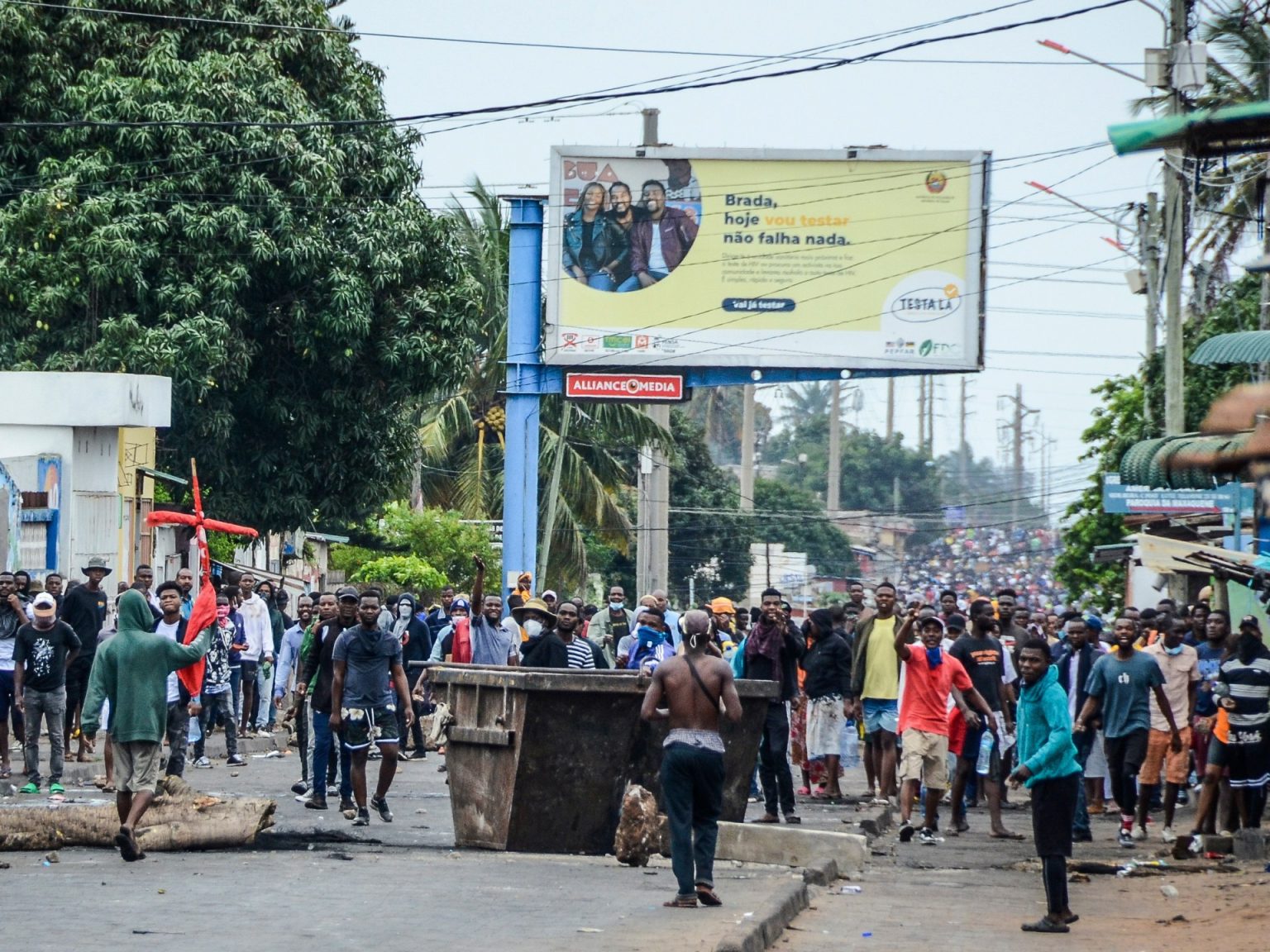The recent confirmation of Mozambique’s October election results, which saw the ruling Frelimo party retain power, has ignited a fresh wave of violent protests across the country. The Constitutional Council’s validation of Frelimo’s victory, and President Filipe Nyusi’s re-election, has been met with widespread accusations of electoral fraud from opposition parties and international observers. These allegations have fueled public anger and distrust, leading to a surge in demonstrations that have quickly escalated into violent clashes with security forces. The unrest has resulted in a tragic loss of life, with at least 21 people killed, including two police officers, and numerous injuries reported on both sides.
The protests, sparked by the perceived illegitimacy of the election outcome, reflect deep-seated grievances simmering beneath the surface of Mozambican society. Accusations of corruption, cronyism, and a lack of economic opportunities have plagued the Frelimo government for years. The contested election results served as a catalyst, igniting pre-existing tensions and channeling public frustration into street demonstrations. Opposition supporters, led by presidential candidate Ossufo Momade of the Renamo party, have accused Frelimo of manipulating the vote count to maintain its decades-long grip on power. These claims have been substantiated by reports from independent election observers, who documented irregularities and instances of voter intimidation.
The post-election violence has taken a disturbing turn, with reports of widespread destruction of property and targeted attacks on government institutions. Protesters, expressing their anger and disillusionment, have resorted to burning tires, blocking roads, and vandalizing police stations, petrol stations, banks, and other public facilities. The escalating violence has prompted the government to deploy the armed forces to restore order and maintain security in key areas. While the government maintains that its response is necessary to protect public safety and prevent further chaos, human rights groups have raised concerns about the excessive use of force by security personnel. Reports of police brutality and extrajudicial killings have emerged, adding another layer of complexity to the already volatile situation.
The current unrest in Mozambique represents a significant challenge to the country’s fragile democracy. The disputed election results and the subsequent violent protests have deepened political divisions and eroded public trust in the electoral process. The government’s heavy-handed response to the demonstrations has further exacerbated tensions, raising fears of a descent into authoritarianism. The international community has expressed concern over the escalating violence and called for restraint from both the government and protesters. Mediation efforts are underway to facilitate dialogue between the opposing sides and find a peaceful resolution to the crisis. However, the deep-seated mistrust and the complex interplay of political and economic grievances make finding a lasting solution a daunting task.
Beyond the immediate political crisis, the unrest in Mozambique highlights the underlying socio-economic challenges facing the country. Despite boasting vast natural resources, including recently discovered offshore gas reserves, Mozambique remains one of the poorest nations in the world. Years of corruption, mismanagement, and political instability have hindered economic development and perpetuated widespread poverty and inequality. The lack of opportunities for young people, coupled with a sense of marginalization and political disenfranchisement, has created a breeding ground for discontent and frustration. Addressing these underlying issues is crucial for long-term stability and preventing further cycles of violence.
The situation in Mozambique remains precarious. The immediate priority is to de-escalate the violence and prevent further loss of life. This requires a concerted effort from all stakeholders, including the government, opposition parties, civil society organizations, and the international community. Dialogue and negotiation are essential to bridge the deep political divide and find common ground. In the long term, addressing the underlying socio-economic grievances and promoting inclusive governance are crucial for building a stable and prosperous Mozambique. The international community can play a vital role in supporting these efforts through development assistance, technical expertise, and diplomatic engagement. The current crisis presents an opportunity for Mozambique to embark on a path of genuine democratic reform and sustainable development, but it will require a commitment from all parties to put aside their differences and work together for the common good.

